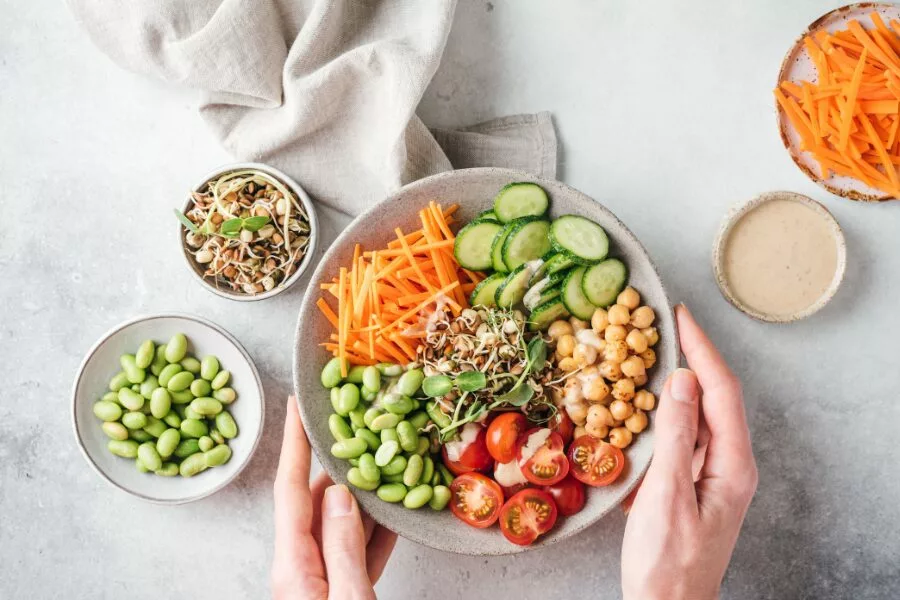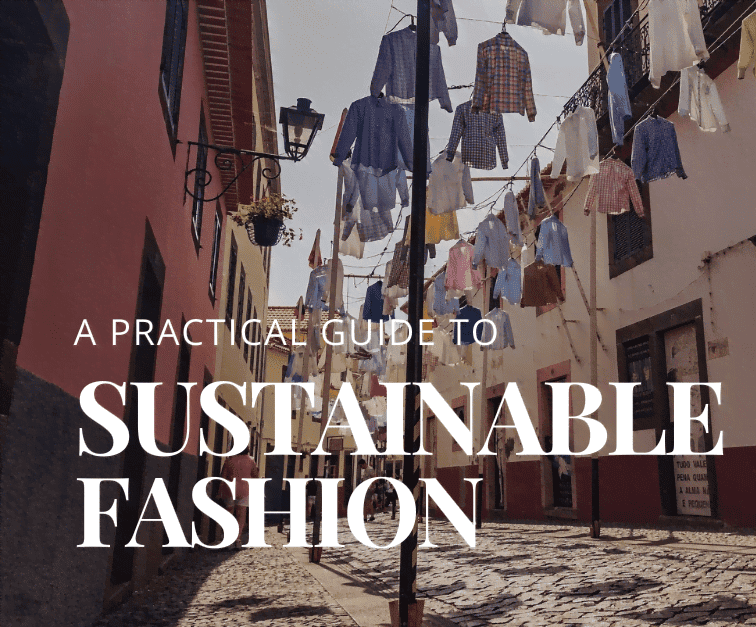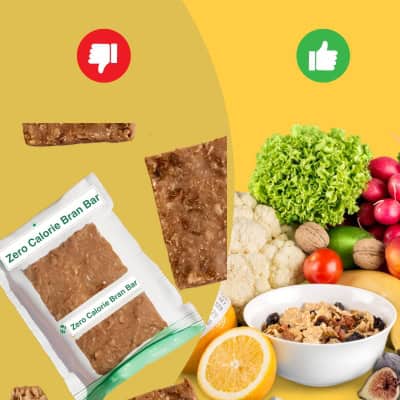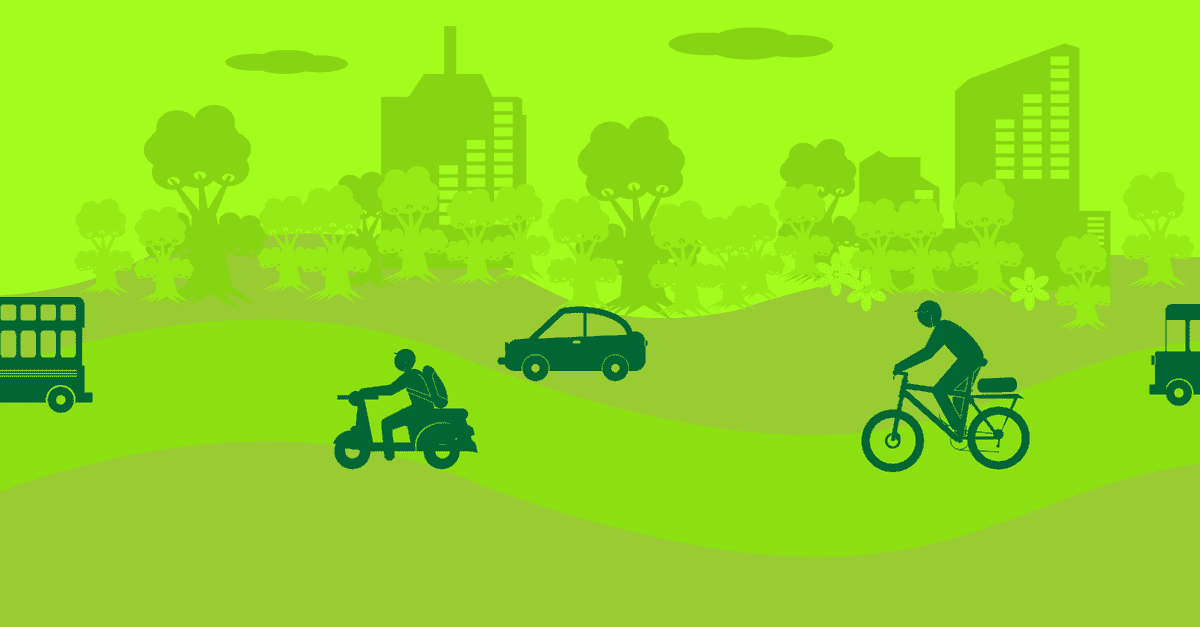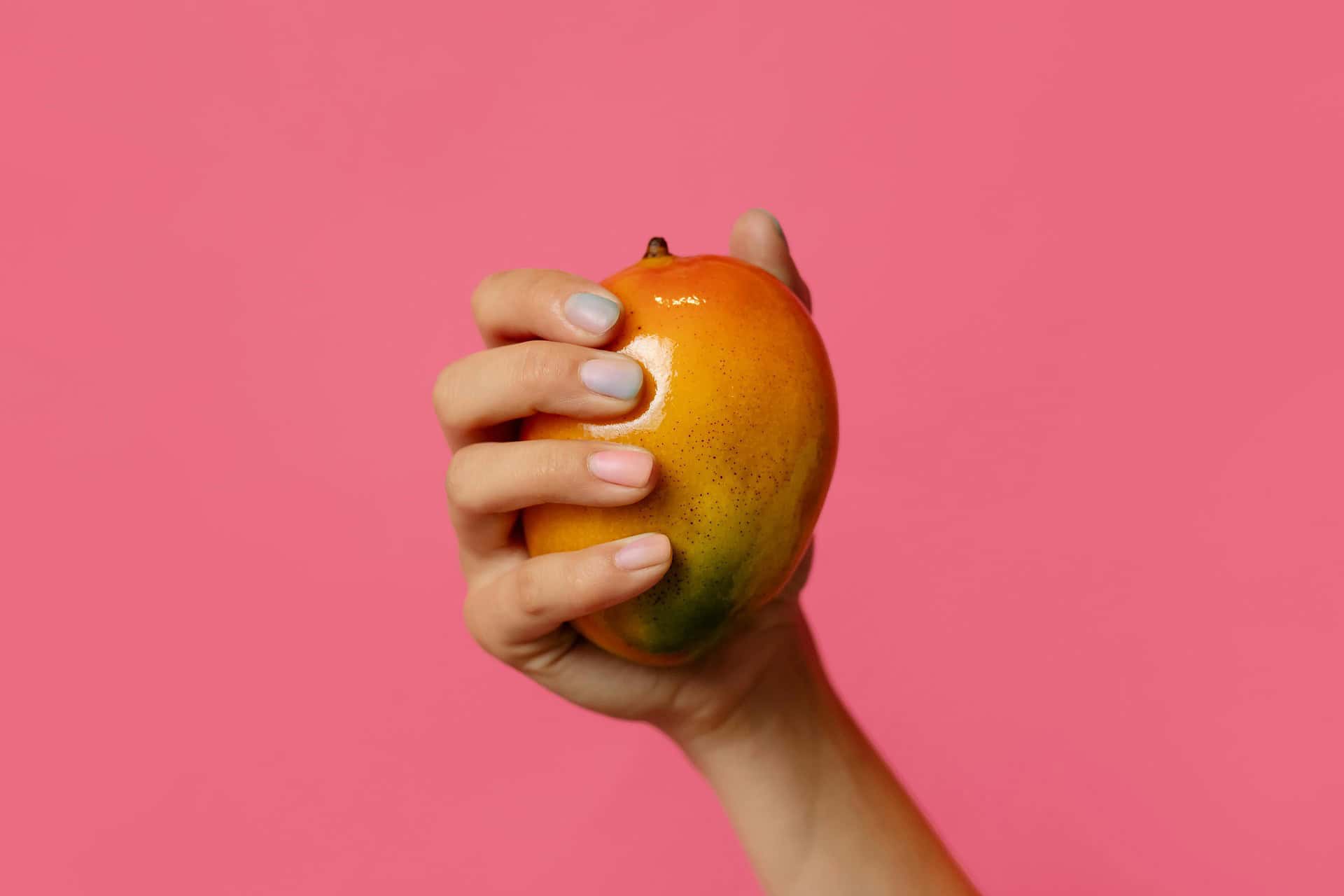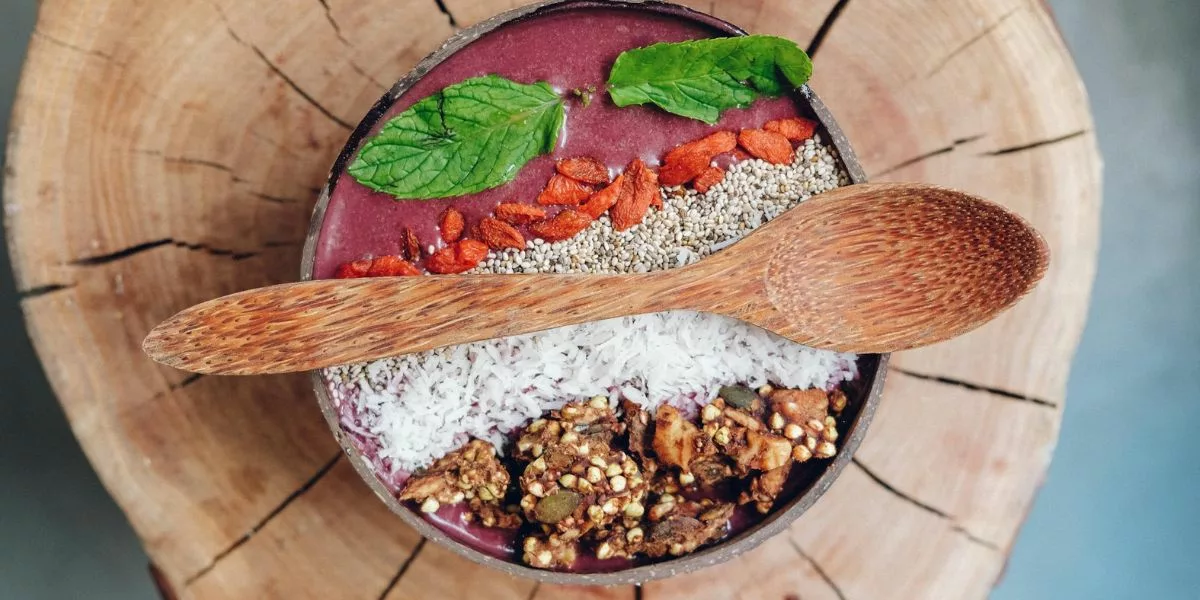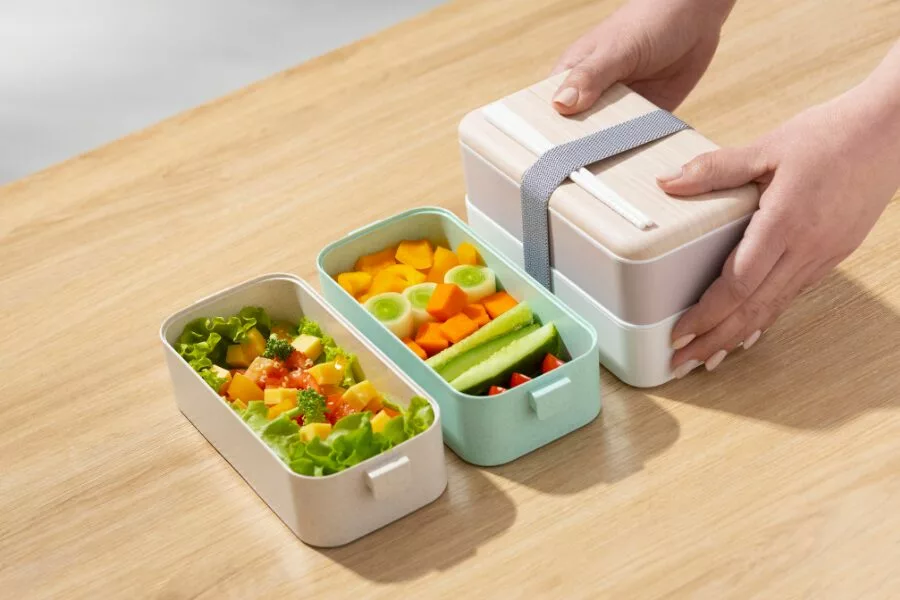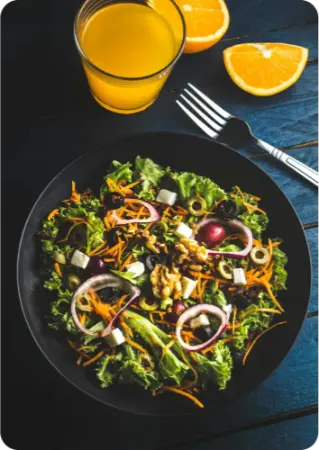Last Updated on September 30, 2024 by Our Editors
One of the most common misconceptions about going vegan is that it’s too difficult, restrictive, or simply impossible to maintain in the long term. Many people wonder why anyone would willingly give up foods like meat and dairy or opt for plant-based alternatives to everyday products like leather or cosmetics. These doubts often stem from a lack of understanding about what veganism really is, why it matters, and how to successfully adopt it into everyday life.
In this beginner’s guide, we will explore the core questions that most people have when considering a vegan lifestyle:
What does it mean to be vegan? Why should I make the switch? How can I transition smoothly to veganism? How to go vegan on a budget?
Unlock Your Savings with Exclusive Offer Coupons
Save big while shopping for sustainable products! Grab your exclusive coupons today!

By the end of this guide, you’ll have the knowledge on how to go vegan, and practical tips you need to make the transition confidently and sustainably.
Saying Hello to Veganism!

Let’s be honest—nobody ever said going vegan would be a breeze. After all, many of us have grown up drinking milk with our breakfast, snacking on turkey sandwiches, and enjoying a cheeseburger without a second thought. So, how to go vegan? At first glance, the idea of giving up these familiar comforts can feel daunting. But here’s the good news: while the transition to veganism may seem overwhelming at first, it gets easier with time and practice. What once seemed impossible will soon become second nature.
Veganism has been gaining momentum in recent years, and for good reason. It’s not just a trend, but a meaningful shift that benefits our health, the planet, and the animals we share it with. People are excited to be part of this change, from adopting plant-based diets to choosing cruelty-free clothing and products. But no one expects you to make the leap overnight. Transitioning to a vegan lifestyle is all about taking small, manageable steps—ones that feel right for you.
It’s completely normal to feel anxious or unsure when deciding to go vegan. Questions like “Where do I start?” or “What will I eat?” or “How to go vegan?” might flood your mind. But fear not! With the right guidance and a bit of planning, you can navigate these challenges with confidence. You’re in the perfect place to begin your journey, and this guide will walk you through the process, one step at a time.
What is Veganism?
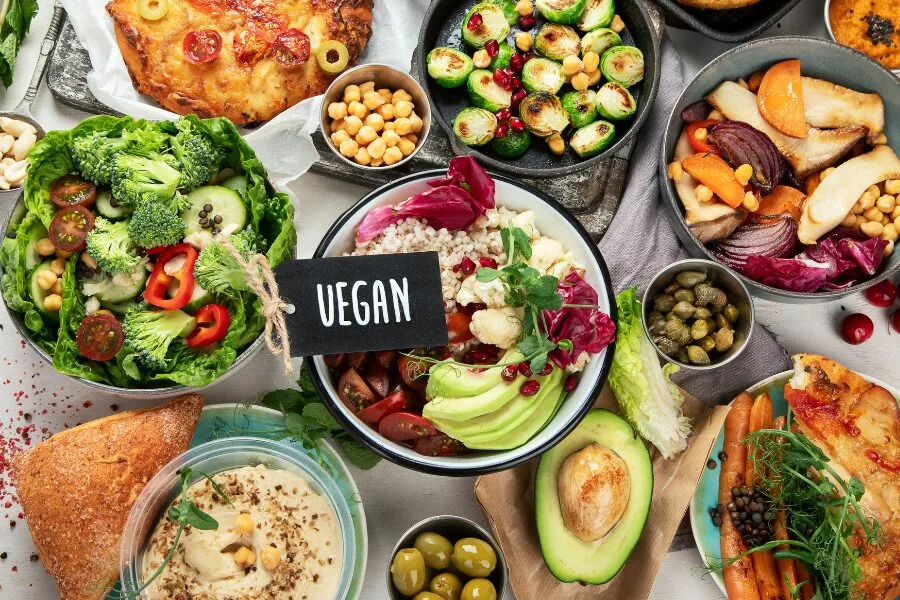
Veganism is more than just a diet—it’s a way of life that rejects the use of animal products, particularly for ethical, environmental, or health reasons. Vegans follow a plant-based diet and avoid all forms of meat, dairy, eggs, and other animal-derived ingredients. However, for many, veganism extends beyond food to include choices in clothing, cosmetics, and other lifestyle products. Before we dive further into how to go vegan, let’s fully understand the term “vegan”.
The term “vegan” was first coined in 1944, when it simply meant “non-dairy vegetarian.” Today, it encompasses a broader philosophy, with various subcategories:
- Strict Vegans: Those who abstain from consuming all animal products, including meat, dairy, and eggs.
- Ethical Vegans: Individuals who avoid animal products not only in their diet but also in other areas like fashion and cosmetics due to concerns about animal rights.
- Environmental Vegans: People who follow a vegan lifestyle based on the premise that animal agriculture is damaging and unsustainable for the environment.
Why Veganism?
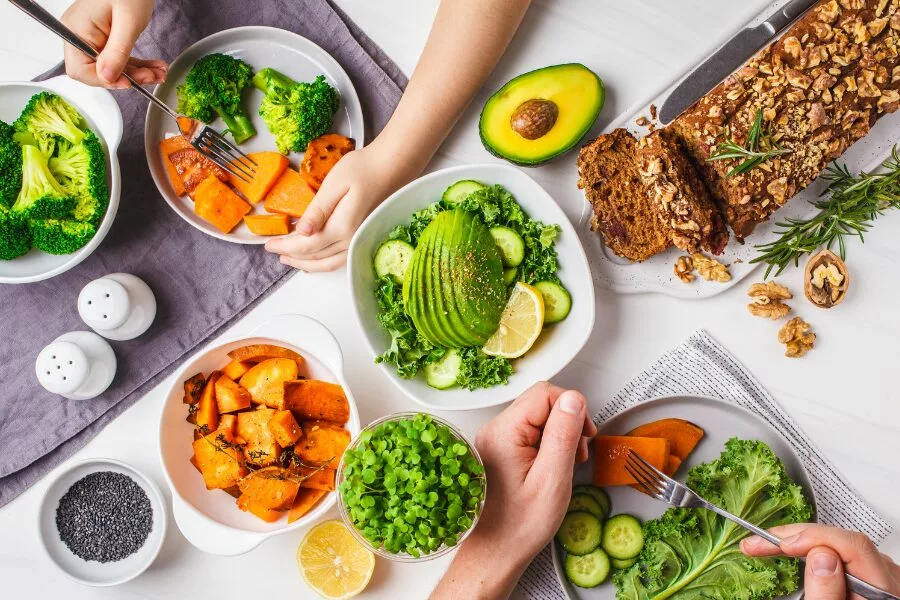
The real question isn’t “why go vegan?” but rather, “why not?” when considering how to go vegan. The benefits of veganism are vast and touch on many aspects of life, from personal health to environmental sustainability. Studies show that people who learn how to turn vegan or have at least 5 reasons to go vegan tend to be healthier, with lower risks of heart disease, obesity, and even cancer. Plant-based diets are rich in essential nutrients like fiber, protein, vitamins, and minerals without the harmful fats found in animal products.
You’ll be surprised to know that vegans typically consume more fiber, folate, vitamin C, potassium, and magnesium, and studies suggest they have better cholesterol levels and reduced risk of chronic diseases. Beyond health, veganism addresses ethical concerns, as more than 56 billion animals are killed yearly for food and clothing, despite the availability of cruelty-free alternatives. Furthermore, animal agriculture contributes significantly to greenhouse gas emissions and freshwater consumption, posing severe risks to the planet’s ecosystems. So, are you ready to learn how to go vegan?
If you choose to go vegan, you can make a positive impact on your health AND reduce your environmental footprint, while contributing to the ethical treatment of animals. Win-win, right? Keep reading to find out how to go vegan.
Is Going Vegan Extremely Challenging?

The answer is both yes and no—it depends on the person. While the initial transition can feel overwhelming, many find that with education and small, gradual changes, turning vegan becomes easier over time.
One approach on how to go vegan for beginners is to take small steps, like replacing animal-based products with plant-based alternatives. For example, you can swap dairy milk with almond or soy milk, or try a plant-based yogurt. Many vegan-friendly products are now widely available, from fake meats to non-dairy cheeses, which can make the transition smoother.
Nutritionally, it’s essential to ensure you’re getting enough protein, calcium, and vitamins like B12, which are commonly found in animal products. B12, in particular, can be sourced from fortified foods or supplements. Planning meals and diversifying your diet with fruits, vegetables, legumes, and grains will help ensure you’re meeting your nutritional needs while helping you on how to go vegan easily.
Is Veganism Expensive?
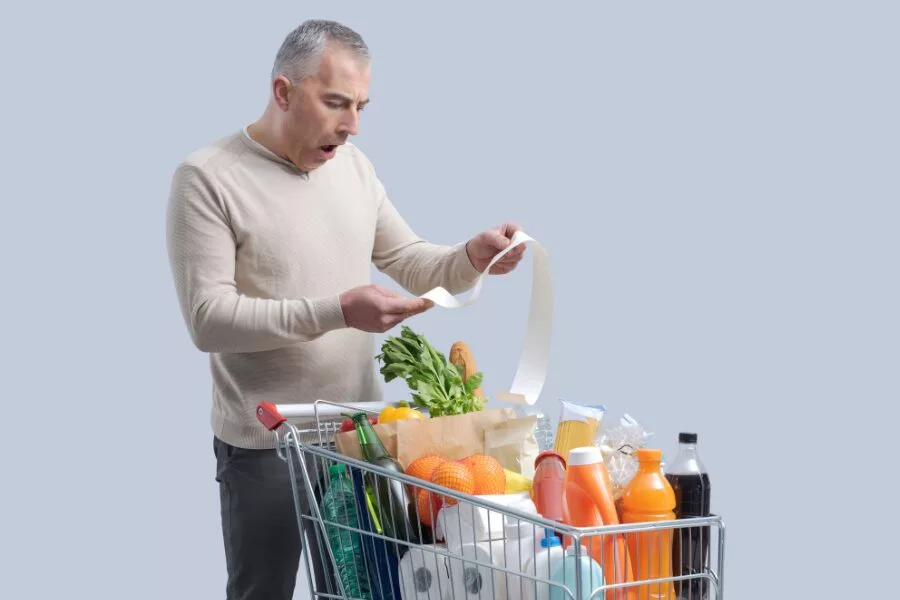
Not necessarily! A vegan diet can actually be more affordable than an animal-based one, especially if you focus on whole, unprocessed foods like fruits, vegetables, beans, and grains. These staples are often inexpensive and widely available.
While some vegan substitutes, such as mock meats or plant-based dairy, may be pricier, this can be balanced by cooking at home and avoiding processed foods. Planning meals in advance can also help cut costs, and buying in bulk is another way to save money. In fact, research shows that vegans often spend up to 40% less than those who consume animal products!
While vegan fashion and lifestyle products can sometimes be more expensive, demand is growing, and as more companies offer vegan alternatives, prices are becoming more competitive. Now, let’s look at vegan alternatives as we continue learning how to go vegan for beginners and giving you more than 5 reasons to go vegan.
Vegan Alternatives to Meat, Dairy, and Eggs: It’s Still Going to Be Delicious!
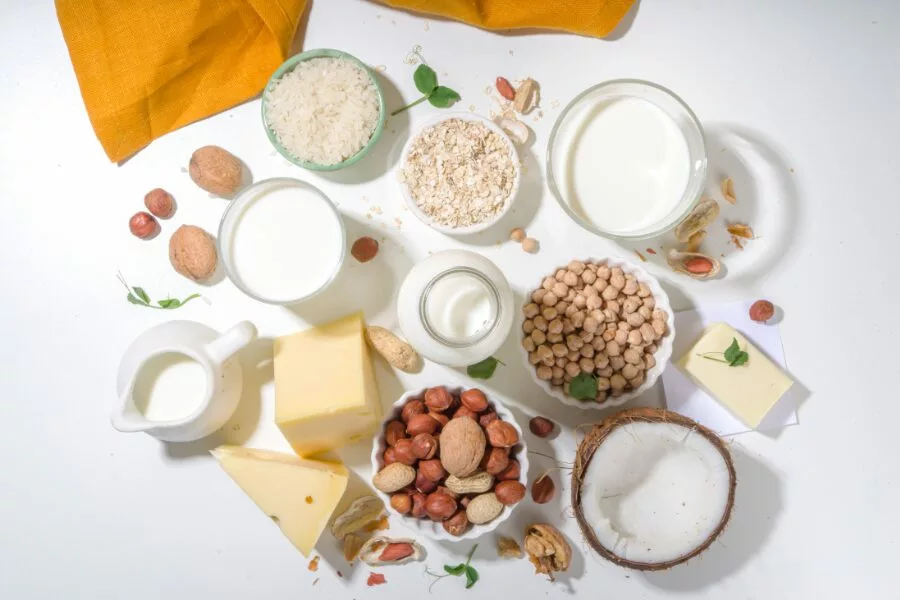
One of the common concerns about how to turn vegan is missing out on favorite foods, but plant-based alternatives have come a long way, offering delicious and satisfying options for those learning how to go vegan. Vegan meats, for example, come in a wide variety, from soy-based deli slices to gluten-based sausages and burgers. Mushrooms, jackfruit, and tofu are great whole-food alternatives that pack a nutritious punch.
For dairy substitutes, soy, almond, and oat milk are popular choices that work well in everything from coffee to smoothies. Plant-based yogurts made from coconut, almond, or soy milk are readily available, and vegan cheeses made from nuts or soy can replace traditional dairy cheeses.
Egg substitutes are also easily found, with flax or chia seeds being perfect replacements in baking. Commercial egg replacers are a great option for those looking to replicate eggs in their recipes. Even for those who love snacks, vegan options abound, including dark chocolate, vegan ice creams, and dairy-free cookies.
At this point of learning how to go vegan reddit, we can safely say that transitioning to veganism doesn’t mean giving up flavor or enjoyment—there’s an abundance of plant-based products to explore, and you’ll find that it’s easier than ever to create satisfying meals without using animal products.
Make the Switch to Veganism Today
Still wondering how to go vegan for beginners? Switching from meat and dairy to vegan foods is easier than ever with a wide variety of plant-based alternatives available. Here are some simple swaps for a vegan food list for beginners that can help you transition without sacrificing flavor or satisfaction:
Meat Alternatives
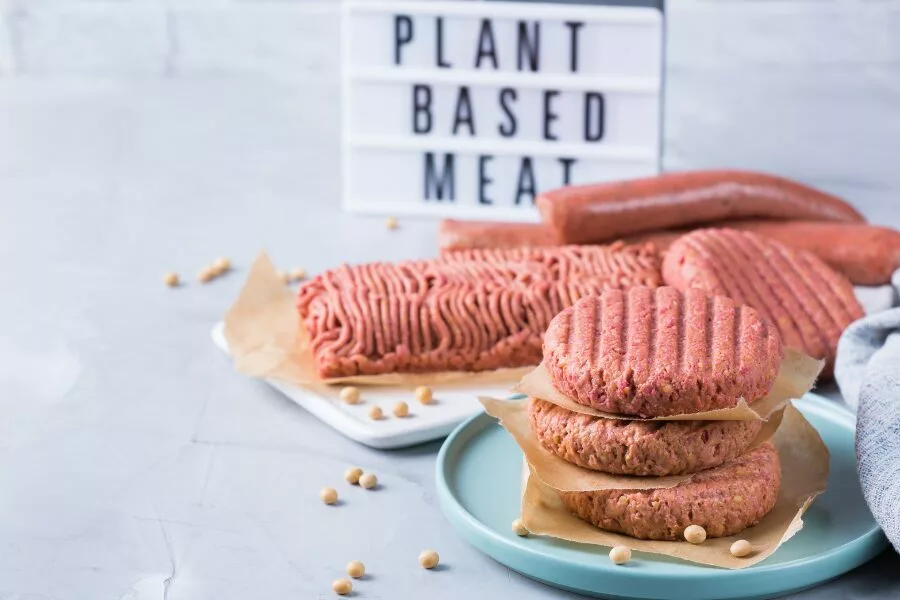
- Plant-based burgers and sausages: Brands like Beyond Meat and Impossible Foods replicate the taste and texture of beef and pork, perfect for burgers, tacos, and hot dogs.
- Soy or wheat-based meats: Tofu, tempeh, and seitan are high-protein options that work well in stir-fries, sandwiches, or grilled dishes.
- Mushrooms and jackfruit: Mushrooms, especially portobello, provide a meaty texture, while jackfruit is an excellent substitute for pulled pork in BBQ dishes.
- Vegan deli slices: Available in various flavors, these soy or wheat-based slices are perfect for sandwiches and wraps.
- Vegan seafood: Tofu-based or seaweed-infused products mimic fish, and there are also plant-based alternatives for shrimp, crab, and sushi.
Dairy Alternatives
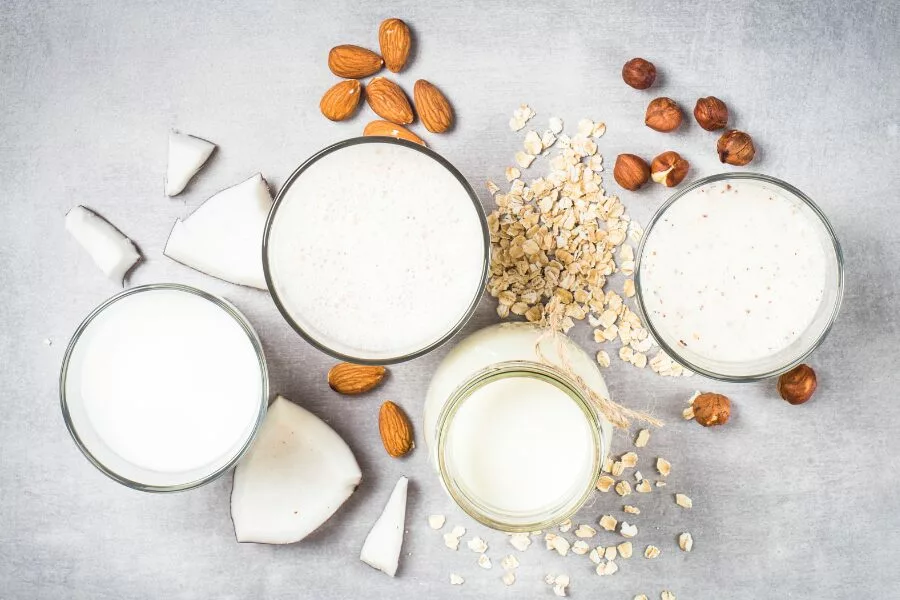
- Plant-based milk: Almond milk, soy milk, oat milk, and coconut milk are all great options for cereals, coffee, smoothies, and baking.
- Vegan yogurt: Coconut, almond, and soy yogurts are creamy, delicious, and perfect for breakfast or snacks.
- vegan butter: Made from oils like coconut or avocado, vegan butter works just like dairy butter for spreading, cooking, or baking.
- Vegan cheese: Cashew-based, almond, or soy cheeses come in a variety of flavors, from cheddar to mozzarella, ideal for melting or snacking.
- Vegan ice cream: Almond, coconut, and soy-based ice creams offer rich, creamy textures in a range of flavors.
- Vegan cream/cream cheese: Cashew cream or plant-based cream cheeses provide smooth, spreadable alternatives for dips, sauces, or desserts.
These simple, delicious swaps make transitioning to a vegan lifestyle easy, allowing you to enjoy familiar flavors while embracing a plant-based diet.
How to Go Vegan on a Budget
Wondering how to go vegan or transitioning to veganism doesn’t have to break the bank. In fact, a plant-based lifestyle can be quite economical if approached thoughtfully. Here are some practical tips to help you maintain a healthy diet while keeping costs low:
Plan Your Meals
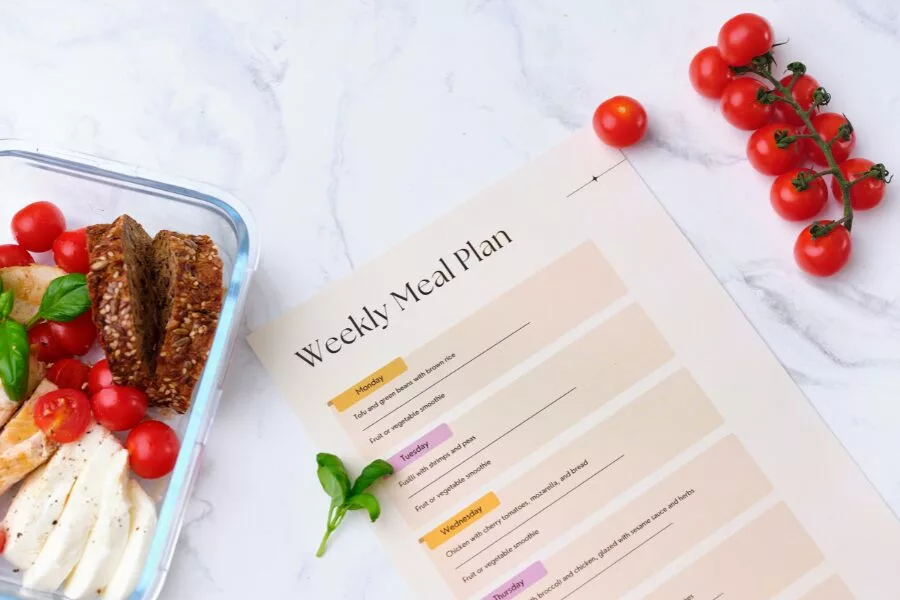
Meal planning is essential for budget-friendly veganism and when learning how to go vegan reddit. Take some time each week to create a menu that includes breakfast, lunch, dinner, and snacks. By planning meals with a vegan food list for beginners, you can make a shopping list focused on the ingredients you need, reducing impulse buys and food waste. Batch cooking meals in advance can also save time and money.
Buy in Bulk
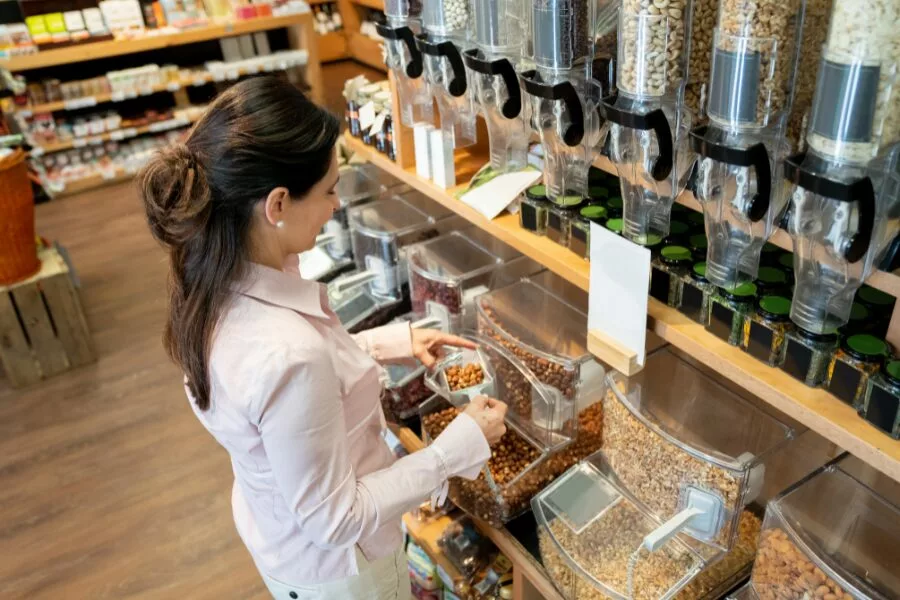
Purchasing items in bulk can lead to significant savings. Look for bulk bins at your local grocery store or health food store for grains, legumes, nuts, and seeds. Buying larger quantities not only reduces packaging waste but also often costs less per unit. Items like rice, oats, lentils, and dried beans are generally cheaper in bulk.
Focus on Whole Foods
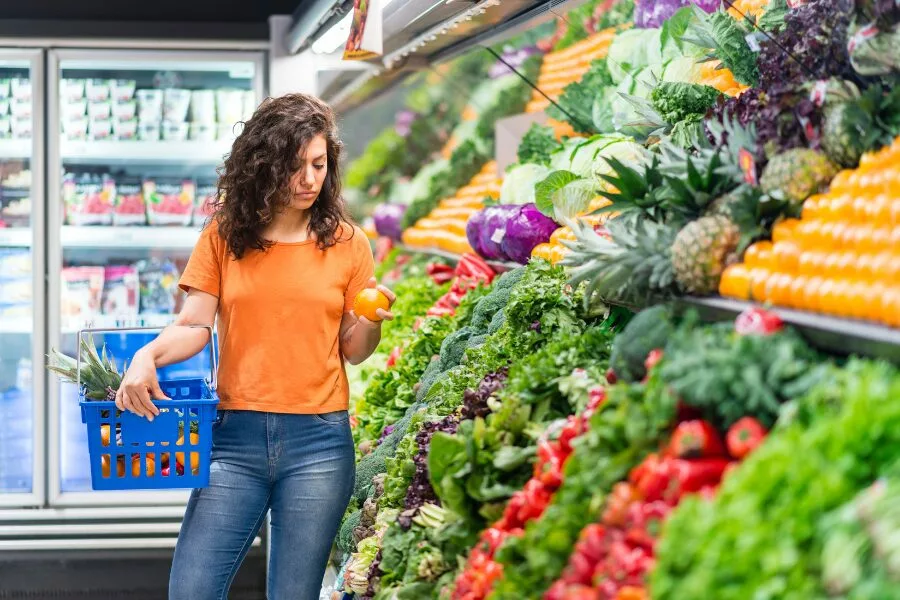
Whole, unprocessed foods tend to be less expensive than packaged vegan products. Base your meals around staples such as beans, lentils, rice, potatoes, seasonal vegetables, and fruits. These foods are not only affordable but also nutritious and versatile. Avoid relying too heavily on expensive vegan convenience foods, which can add up quickly.
Shop Seasonally and Locally
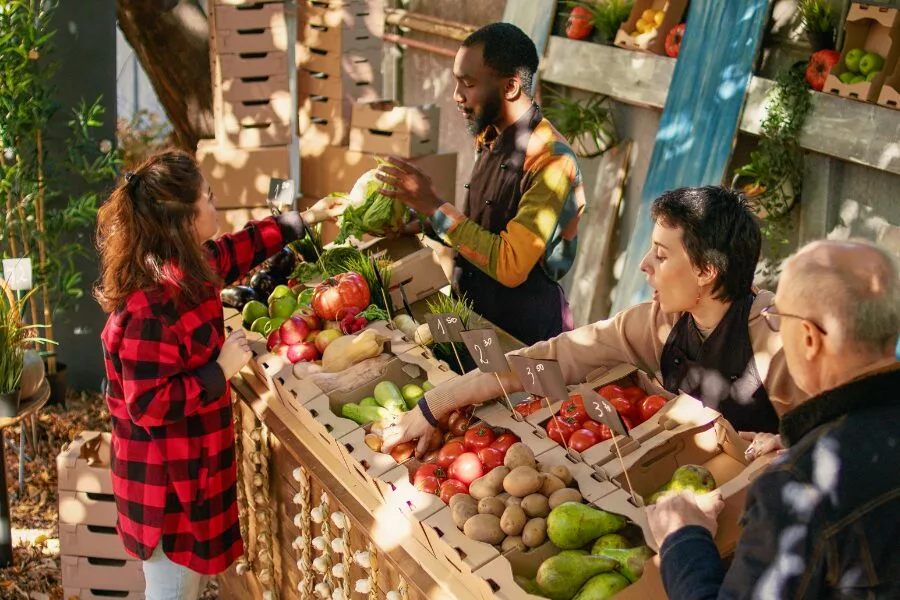
Wondering how to go vegan sustainably? Buying seasonal fruits and vegetables is the way to go, and can lower your grocery bills significantly. Produce that is in season is usually more abundant, fresher, and cheaper. Additionally, consider shopping at local farmers’ markets, where you might find great deals on fresh produce. Some markets even offer discounts towards the end of the day to sell off remaining items.
Use Discounts and Coupons

Keep an eye out for discounts, sales, and coupons at your grocery store. Many stores offer loyalty programs or digital coupons that can help you save money on your purchases. This is a great tip for those looking for how to go vegan on a budget. Consider using apps designed to find grocery deals or track sales on items you regularly buy.
Grow Your Own Food
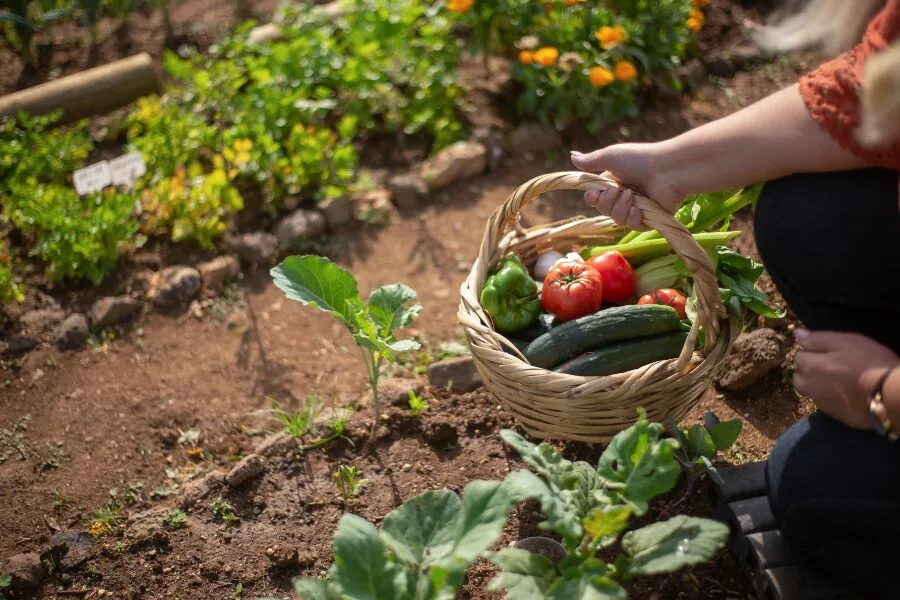
If you have the space, growing your own vegetables and herbs can be a cost-effective way to enhance your vegan meals. Even small pots on a windowsill can yield herbs, lettuce, or tomatoes. Gardening can be rewarding and provide fresh ingredients at little to no cost.
By following these tips on how to go vegan, you can enjoy a delicious and fulfilling life without straining your budget. Embrace creativity in the kitchen and focus on simple, wholesome meals to make the most of your plant-based journey, without worrying about going vegan side effects!
Summing Up
To pack it up, it can be said that veganism is a very specific scheme of consciously adapting according to the needs of our planet. If followed vigorously, it will enhance the production and consumption of food and other products in a manner that would neither harm the biodiversity nor deplete the natural resources from essential ecosystems.
Going vegan is just a baby step towards achieving a higher goal of sustainability through collective action. With the right motive in this direction, we can have a very positive impact on the betterment of the lives of ourselves, others, and most importantly, OUR environment.
Want to read more like this?
Get similar stories and a free sustainability checklist delivered to your inbox.

Like our content?
Get similar stories and a free sustainability checklist delivered to your inbox.

Frequently Asked Questions
How do I start a vegan diet as a beginner?
To start a vegan diet, begin with gradual changes. Replace animal products with plant-based options like almond milk, tofu, and legumes. Focus on whole foods such as fruits, vegetables, grains, and nuts while reducing meat, dairy, and eggs. Meal planning and experimenting with simple vegan recipes will help make the transition smoother.
What are going vegan side effects?
Some people may experience temporary going vegan side effects like bloating, gas, or changes in digestion when first going vegan. This is typically due to an increase in fiber intake. To avoid nutritional deficiencies when learning how to go vegan reddit, it’s important to include sources of vitamin B12, iron, and omega-3 fatty acids through fortified foods or supplements while your body adjusts.
How can I go vegan on a budget?
Going vegan on a budget is easy when focusing on affordable whole foods like beans, lentils, rice, and seasonal vegetables. Avoiding processed vegan products, cooking at home, and buying in bulk are cost-effective strategies. Simple dishes like soups, stews, and stir-fries made from basic ingredients can help you maintain a nutritious vegan diet without overspending.
What is a basic vegan food list for beginners?
A beginner’s vegan food list should include essential plant-based staples. For protein, include tofu, lentils, and chickpeas. Grains like quinoa, brown rice, and oats are great for meals. Stock up on vegetables, fruits, and dairy substitutes like almond milk and vegan cheese. Keep healthy snacks on hand, such as nuts, seeds, and hummus.
What are 5 reasons to go vegan?
There are numerous reasons to go vegan. Health-wise, it reduces the risk of chronic diseases like heart disease and cancer. Veganism also prevents animal cruelty in industries and helps reduce environmental impacts like deforestation and greenhouse gas emissions. Additionally, vegan diets promote better digestion, and ethical consumption fosters a more sustainable lifestyle.

